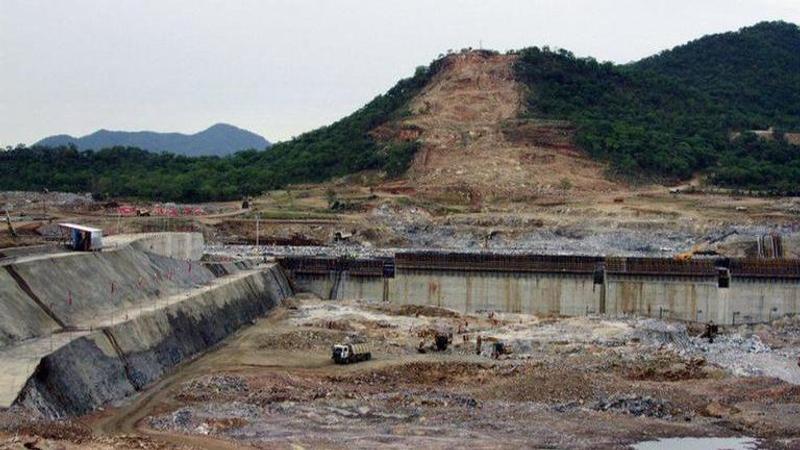Published 11:25 IST, July 14th 2020
Nile states end talks on Africa's largest dam with no deal
A round of negotiations between three key Nile basin countries over Ethiopia’s contentious hydroelectric dam ended on Monday with no agreement, according to Egyptian and Sudanese officials.

A round of negotiations between three key Nile basin countries over Ethiopia’s contentious hydroelectric dam ended on Monday with no agreement, according to Egyptian and Sudanese officials.
The setback sunk modest hopes that the three countries could resolve their differences and ink an agreement before Ethiopia begins to fill its $4.6 billion hydroelectric dam. Ethiopia had previously pledged to start filling the reservoir, even without a deal over its operation, at the start of the wet season in July, when rains flood the Blue Nile. A declared window of two to three weeks to resolve the dispute is closing fast.
To Ethiopia, the colossal dam offers a critical opportunity to pull millions of citizens out of poverty and become a major power exporter. To downstream Egypt, which depends on the Nile River to supply its farmers and booming population of 100 million with fresh water, the dam poses an existential threat.
Years of talks with a variety of mediators, including the Trump administration, have failed to produce a solution. Last week’s round, mediated by the African Union and observed by American and European officials, proved no different. Filling the Grand Ethiopian Renaissance Dam without a deal would sharply escalate tensions in the bitter dispute. Experts fear it could push the countries to the brink of military conflict.
“All of the efforts exerted to reach a solution didn’t come to any kind of result,” said Egyptian Foreign Minister Sameh Shukry Monday in an interview with Egypt’s DMC TV channel.
Shukry warned Egypt may be compelled to appeal again to the U.N. Security Council to intervene in the dispute, a prospect Ethiopia rejects, preferring regional bodies like the A.U. to mediate.
“If there is something that threatens the regional security of Egypt and international security, it is the main responsibility of the Security Council to adopt procedures that will prevent this,” he said.
Meanwhile the countries agreed they would send their reports to the president of the African Union, and reconvene in a week to determine next steps.
There was no immediate comment from Ethiopia on the latest round of talks.
Between Egypt and Ethiopia lies Sudan, literally and figuratively. The African country stands to benefit from Ethiopia’s project through access to cheap electricity and reduced flooding, but it has also raised fears over the dam’s operation, which could endanger its own smaller dams, depending on the amount of water discharged daily downstream.
In a press conference on Monday, Sudanese Irrigation Minister Yasser Abbas explained a series of sticking points.
While the parties were “keen to find a solution,” technical and legal disagreements persist over its filling and operation, he said. Most important, he said, are the unresolved questions of how much water Ethiopia will release downstream if a multi-year drought occurs, and how the countries will resolve any future disputes.
Hisham Kahin, a member of Sudan’s legal committee in the dam negotiations, said 70%-80% of negotiations turned on the thorny question of whether an agreement would be legally binding. Ethiopia, he said, fears a binding agreement will hinder its future development projects. Sudan and Egypt consider it critical.
“All suggestions are under discussion,” said Kahin. “We have made very little progress.”
Updated 11:25 IST, July 14th 2020




